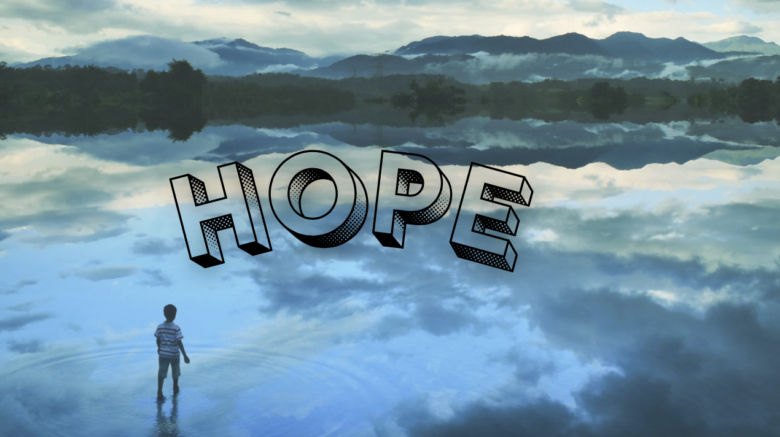by Paul Savides
“The very least you can do in your life is figure out what you hope for. And the most you can do is live inside that hope. Not admire it from a distance but live right in it, under its roof.”
— Barbara Kingsolver
The idea of hope has been much in my thoughts lately, especially during this holiday season. There seems to be so much anger and unhappiness in the world right now. The news is always dire and alarming. There is so much suffering, one doesn’t know where to begin to help. And yet there is hope.
JONAH stands for Joining Our Neighbors Advancing Hope, so what exactly is the hope we want to advance? Wikipedia tells us that hope is “an optimistic state of mind that is based on an expectation of positive outcomes of events and circumstances in one’s life or in the world at large.” This is a good start, but I think hope is more than just a state of mind; it is a way of living that keeps us healthy and sane. It reduces our feelings of helplessness, increases our happiness, reduces stress, and generally improves our quality of life. It means that when we get knocked down, we get back up again. Hope is a choice we make about how we react to the world around us.
Hope is not a passive thing. When we truly hope for something, we commit to the work that will make that thing happen. When we hope to see more affordable housing for our most vulnerable neighbors, then we commit to working with those experiencing homelessness or housing insecurity, as well as with our landlords, property managers, developers, service providers, and city and county officials, to ensure that more affordable housing will become available. And by our actions, we engender hope in those who are struggling to find safe, healthy, affordable housing.
For people in recovery, hope can be life saving. It keeps them focused on the positive changes they are making. Their hope can keep them committed to managing their self-care and to moving forward in a happy and healthy way.
Hope inspires others to have hope. I know I much prefer being around hopeful, optimistic people. They inspire me to be my better self, to work for the benefit of others, and to approach every problem with confidence and hope.
One thing I have learned about hope is that it should not be tied too tightly to outcomes. If the desired outcome does not occur, one can become cynical or depressed. My friend Susan Wolfgram frequently reminds me that we are only responsible for the process, not the outcome. There are just too many variables that can affect the outcome, and if things don’t turn out as we hoped, we must take comfort in the knowledge that we did our best, then learn from the experience and try again.
Focusing too much on future outcomes takes us out of the here and now. In many ways, the greatest value of hope is that it keeps us happy and positive so that we can appreciate the life we have now.
So even though the world is in turmoil and so many of our neighbors are suffering, I encourage you to choose hope. As hopeful people we can move forward with a cheerful spirit to work to reduce the pain and suffering we see around us, and we can inspire others to do the same. We can support one another with encouragement and love, and we can have faith that when our work is done, there will be others who take up the challenge and continue to build the Beloved Community we so deeply desire.

